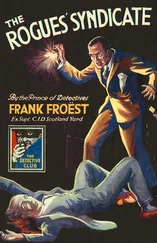She made a bet with herself No one would go, but someone would ask a question.
She waited.
A hand was raised.
It was Mick Rubin. He came from Manchester, England, and was a biologist, an expert on molluscs.
'Does that mean we won't be able to leave the Chateau?'
'You can leave whenever you want. But you can't talk about your work,' Li told him.
'And what if. . .' Rubin wasn't sure how to finish.
'If you talk?' Li's face assumed a look of consternation. "That's a perfectly valid question, of course. Well, we'd have to deny everything, and make quite sure you didn't break your word again.'
'So you're … I mean, er… You're able to do that? I mean, you have that, er…'
'Authority? The majority of you will be aware that three days ago Germany called for a joint European Union commission to deal with the current situation. The German minister of the interior now chairs that initiative. As a precaution, Article V of the NATO treaty has also been invoked. Norway, the UK, Belgium, the Netherlands, Denmark and the Faroes have all declared a state of emergency, in some cases regionally, in others on a national scale. Canada and the USA have already combined forces under US leadership. Depending on how the international situation develops, there's every chance that the United Nations will take some kind of overall control. Throughout the world the existing order is crumbling and new jurisdictions are emerging. In view of the exceptional circumstances, yes, we do have that authority.'
There were no further questions.
'Good,' said Li. 'Then let's get going. Major Peak, I'll hand over to you …'
PEAK WALKED TO the front. The overhead lighting shimmered on his ebony skin. He pressed the button on the remote control and a satellite image appeared on the screen. A picture of a coastline dotted with towns, taken from considerable height.
'Maybe it started somewhere else,' he said, 'maybe this wasn't the beginning, but for today's purposes, this whole business kicked off in Peru. The slightly larger town in the middle here is Huanchaco.' He shone the laser pointer at different sites in the sea. 'Huanchaco lost twenty-two fishermen in a few days, despite the glorious weather. Some of their boats were found later, drifting out to sea. Soon afterwards sports boats, motor yachts and small sailing-boats went missing too. In some cases a few scraps of debris were recovered, but more often than not, nothing.'
He called up another image.
'The seas are under continual surveillance,' he continued. 'They're full of profilers and robotic floats transmitting a constant stream of data on salinity, temperature, carbon-dioxide flux, current velocity and all kinds of other phenomena. Marine instruments monitor the exchange of substances between the water and the seabed. There's a flotilla of research vessels cruising the oceans out there, and the skies are full of military and Earth-observation satellites. You'd think it wouldn't be a problem to trace a missing boat, but things aren't that simple. You see, our spies in the sky suffer the same problem as anything else that has eyes – the notorious blind spot.'
A diagram showed a section of the Earth's surface. A collection of satellites of varying sizes hovered above it, like oversized flies.
'I recommend you don't even try to get to grips with all the artificial stars up there,' said Peak. 'There are three and a half thousand, not counting space probes like Magellan or Hubble. Most of the stuff up there is junk. Only about six hundred satellites are fully functional, and you'll have access to several of them. Military satellites included.'
Peak uttered that last sentence with regret. He shifted the laser pointer to a barrel-shaped object with solar sails. 'An American KH-12 keyhole satellite, an optical satellite. In daylight the resolution is as good as five centimetres. That's almost enough to identify individual faces. It also uses infrared and multispectral imaging to generate nighttime data. Unfortunately it's useless in cloud.'
He pointed to another satellite. 'That's why lots of recon satellites use radar instead – microwave radiation, to be precise. Clouds don't get in the way of radar. These satellites don't take pictures, they map the world by scanning the surface of the planet centimetre by centimetre and creating a 3-D model. But there's an Achilles' heel here too. Radar images need to be interpreted. Radar can't see colour or look through glass. The world of radar consists solely of shapes.'
'Can't you combine the two technologies?' asked Bohrmann.
'You can, but it's expensive, and no one bothers. And that ties right in with the central problem of satellite surveillance. To survey an entire country or a stretch of water, you need a number of systems working together, each capable of scanning a very large area. Anyone interested in obtaining detailed images of a defined area has to put up with snapshots in time. Satellites are in orbit, and in most cases it takes them ninety minutes to return to their original location.'
'What about satellites that maintain their position in relation to the Earth?' a Finnish diplomat demanded. 'Can't we post a few of those above the regions in question?'
'They're too high up. Geostationary satellites are only stable at an altitude of exactly 35,888 kilometres. The smallest recognisable detail from that height is eight kilometres long. That means Heligoland could sink without you realising.' Peak paused, then continued: 'But once it dawned on us what we were looking for, we changed our systems accordingly.'
Next up was a picture of the water's surface, taken from a moderate height. Rays of sunshine slanted across it, giving the sea the appearance of fluted glass. Dotted over it were small boats and tiny oblong shapes, which on closer inspection turned out to be reed craft, each with a single figure crouching on top.
'A close-up from KH-12,' said Peak. "The shelf region near Huan-chaco. A bunch of fishermen disappeared from there that day. The footage was taken early in the morning so the glare isn't too bad, which is fortunate, since it allows us to see this.'
The next picture showed a silvery patch spread over a considerable area. Two forlorn little reed boats sailed over it.
'Fish. An enormous shoal. They're swarming about three metres below the surface, which is why we can see them. The problem with the ocean is that it's a very poor conductor of electromagnetic waves. Fortunately our optical systems can see a little way under, if the water's sufficiently clear. Of course, using thermal imaging we can detect a whale at a depth of thirty metres. That's why the military's so fond of infrared, because it shows up the subs.'
'What kind of fish are they?' The question came from a dark-haired young woman. According to her name badge, she was an ecology expert from the Ministry for the Environment in Reykjavik. 'Dorado?'
'Maybe. Or they could be South American sardines.'
'There must be millions. Incredible. I was under the impression that the South American waters had been seriously overfished.'
'And so they have,' said Peak, 'which got us thinking. That, and the fact that the fish turn up wherever swimmers, divers and small boats have been reported missing. There've been a string of shoaling anomalies. Approximately three months ago a shoal of herring sank a nineteen-metre trawler off the coast of Norway.'
'I heard about that,' said the ecologist. 'The Steinholm , right?'
Peak nodded. 'The fish were caught in the net, but just as the crew were about to haul them on board, they turned and swam to the bottom. The boat capsized. The crew tried to cut the net loose, but it was too late. They had to abandon ship. It sank in ten minutes fiat.'
'Not long afterwards we had a similar incident off the coast of Iceland,' the ecologist said thoughtfully. 'Two sailors drowned.'
Читать дальше












